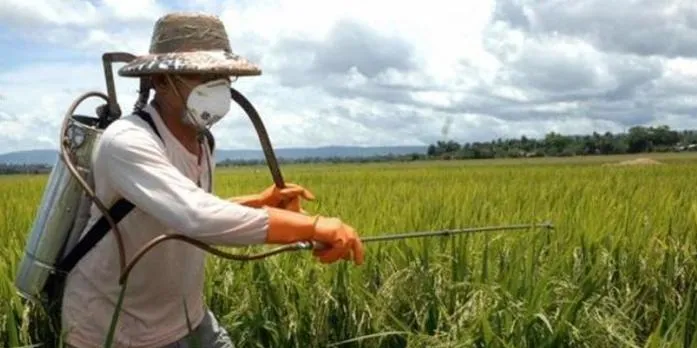

Impacts of agrochemicals on the environment
It's time that we focus to preserving what helps us survive.
India thrives on agriculture and continues to be the major workforce in the country contributing about 50% along with allied sectors. When it comes to farming out, India is a leading name, ranking second worldwide.

An agrochemical is a chemical substance like fertilizer, hormone, fungicide, insecticide or soil treatment that helps improve the production of the crop. It refers to inorganic fertilizers and pesticides that provide benefits and manage agricultural echo system and is used in the farming fields. In the past decades with the wake of the green revolution, use of inorganic fertilizers and pesticides had increased enormously for enhancing crop production.
Agrochemicals include:
1. Soil Fertilizers
2. Liming and acidifying agents
3. Soil conditioners
4. Pesticides and Fungicide
5. Antibiotics and hormones.
With the lack of right nutritious elements proper growth of the crops becomes very slow and to some extends impossibly. Hence to overcome these agrochemicals are applied with their best modified and oriented results helping the crop growth. The application of these agrochemicals has been decisive for crop growth, basically for food. Although being a boon to crops some of the chemicals are prone to cause damage to our environment and ecological balance system. Along with having Positive impacts the Negative impacts of Agrochemicals on the environment are becoming clearly quite large. The impacts of agrochemicals on the atmosphere have numerous bad effects on nature and the Earth’s ecological system.
The use of toxic agrochemicals can also result in environmental problems. During many uses of pesticides in agriculture, the exposure of other organisms, including humans, is not well controlled and hence there occur a lot of problems.
Impacts of Agrochemicals on the Environment
The negative impacts of agrochemicals are harming our environment with their chemical resources, which seem to produce an adverse effect on humans, animals, and nature in whole.
Let’s have a look on impacts of Agrochemicals:
Impacts on Soil
• They may destroy helpful bacteria’s in soil
• Increase nitrate content in the soil which is poisonous to man and animals
• Imbalances pH levels of soil
• Destroy soil organisms
• May create hurdle in growth effects
• Causes residual effects
Impacts on Water:
• Usually, make water unfit for humans and animals consumption.
• Diffusion of Agrochemicals in larger water bodies promotes the growth of algae which is again hazardous.
• Excess chemicals may lead to Eutrophication.
• Lead12 to water pollution thereby affecting aquatic habitats.
• Changes in the chemical properties of water.
Impacts on Air:
• Pesticide particles diffuse with air altering their nature and make it unfit for consumption.
• The wind carries polluted air to other parts and thereby spreading their ill effects all over.
• Depending on weather conditions prevailing, a large amount of spray may evaporate in the environment.
• Air polluted by agrochemicals in this way is inhaled by surrounding living organisms causing drastic effects on their health.
Control Measures for Agrochemicals
The choice of safe technology is important. There may be several types of spray equipment available in the market, which are often best for safety. The adoption of safe working systems will minimize the risk. The arrangement of safe working time, particularly in hot and humid climates, would be relevant for controlling. Agrochemical users should remember to seek advice when needed.
To preserve this superiority, HPM Chemicals and Fertilizers Ltd. has played a major role. With a major contribution in the agro-chemical sector, the company is adamant about serving India, the land of Agriculture.







